
Academy
19.12.2024
Wishes for the New Year... Write to us!
The gift list is as much a part of the Christmas tradition as the candlelight, the tree, the stockings and the candy canes. Making good resolutions is also closely linked to this time of the year. Inspired by these rituals, we are taking advantage of this last News of 2024 to ask you what you would like to see happen at the SAMS.
We will not be able to implement your suggestions overnight, but with an eye to our 2029–2032 multi-year plan, which we will prepare next year, we are interested in gathering a wide range of views. To find out how to take part and which thank-you gift we'll be offering, please read our Newsletter linked below. We look forward to hearing from you and wish you a peaceful end to the year and a happy 2025.
Further information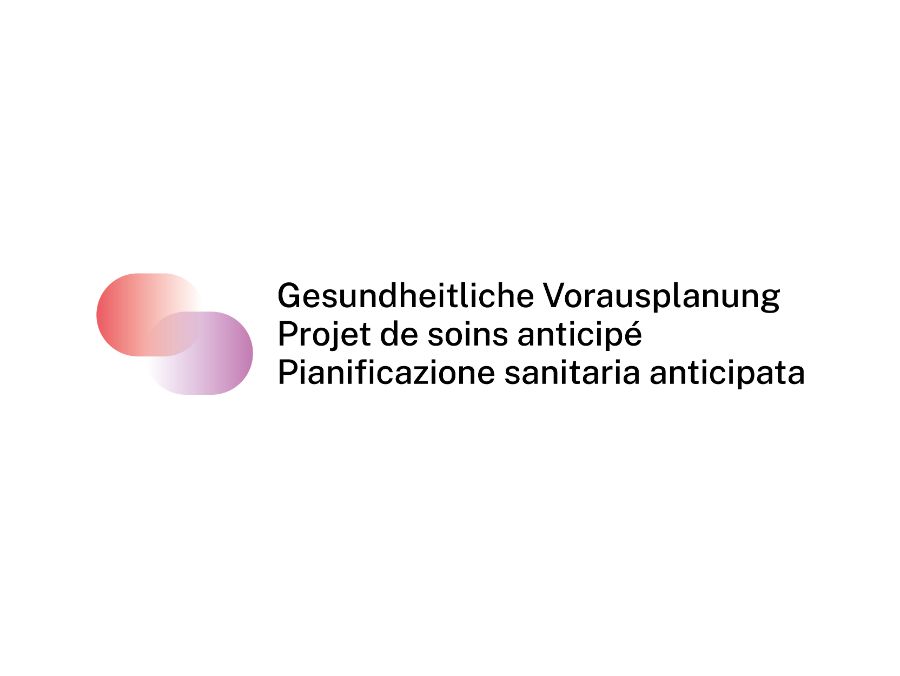
Ethics
17.12.2024
Advance care planning for emergencies: aiming for a standardized form
Medical emergencies require immediate action. At the same time, these must take into account the patient's wishes. To ensure this, various forms exist. A working group has analyzed existing documents and defined a first set of principles for a standardized form throughout Switzerland.
Advance care planning (ACP) can also be considered for acute emergencies. In contrast to an advance directive or a treatment plan, the form solely deals with situations that require an immediate decision about the use of medical measures. The SAMS has entrusted Professor Regina Aebi-Müller to clarify the legal significance of «medical orders for life-sustaining treatment». In her expert opinion, she states that the ACP form for emergency situations must be taken into account during treatment.
Legal opinion, French Version (PDF)

Funding
12.12.2024
Young Talents in Clinical Research: 15 grants awarded
With the Young Talents in Clinical Research program, the Gottfried and Julia Bangerter-Rhyner Foundation and the SAMS encourage young medical doctors to start out in clinical research. At the end of the 2024 call for applications, 15 talented clinicians are supported with a total amount of CHF 959’702.
The YTCR program comprises two instruments: «beginner grants» provide protected time for research, while «project grants» finance a consecutive research project to broaden and consolidate the expertise acquired during the «beginner grant». This year, 14 «beginner grants» and one «project grant» were awarded. The next call for applications will be launched in spring 2025, with a submission deadline on 30 June 2025. For more information about the program and the list of grantees, please visit our website.
Flyer «Young Talents in Clinical Research» (PDF)

Funding
05.12.2024
KZS Fund: 3 Seed Grants for junior researchers in biomedical ethics
The 2024 call from the Käthe Zingg-Schwichtenberg (KZS) Fund was thematically open and intended for junior researchers in biomedical ethics. 3 Seed Grants with a total amount of CHF 219’658 will allow grantees to explore an innovative research idea, to realize a small, independent pilot project and/or to prepare their own project proposal to be submitted to a larger funding agency.
The objective of the call was to support junior researchers in obtaining independent research experience, facilitating the transition to the next step of their academic career. Before the next call for proposals is launched, the SAMS will conduct a survey among previous recipients of the KZS Fund in order to evaluate the added value of the instrument. Results will be communicated via newsletter and on our website.
Synopsis of grantees (PDF)

Publications
26.11.2024
Not giving up on federalism, but rethinking it
Should health be anchored in the Swiss Constitution? Luca Crivelli, Full Professor of Health Economics and Policy at SUPSI, explores this topic in the lead article of our latest Bulletin. He shows how federalism shapes the current healthcare system and discusses the possibility of redistributing responsibilities between the Confederation and the cantons.
In addition, interviews reveal how Prof. Henri Bounameaux has perceived his time as SAMS President and what hurdles this year's laureate of the Stern-Gattiker Prize has overcome. The expansion of the Swiss Personalised Health Network (SPHN), the President of the Central Ethics Committee’s impressions of the Symposium on medical-ethical guidelines, the presentation of the new Senate’s members and the Seed Grants from the KZS Fund complete Bulletin 4/2024.
SAMS Bulletin 4/2024, French version (PDF)

SPHN
21.11.2024
A new president for the Swiss Personalized Health Network from 2025
Prof. Urs Frey, Basel, has chaired the Swiss Personalized Network (SPHN) since 2019. At its meeting in November, the SAMS Senate elected Prof. Matthias Baumgartner, Zurich, as his successor. From 2025, he will accompany SPHN with the Data Coordination Center (DCC) into the maintenance phase.
Matthias Baumgartner is Full Professor of Metabolic Diseases at the University of Zurich, Director of Research and Teaching at the University Children’s Hospital Zurich, and head of the Department of Metabolic Diseases. After Urs Frey, we are delighted to once again have an experienced physician and clinical researcher with a Swiss-wide network at the helm of SPHN. More information on the current and future SPHN President can be found in the newsletter published today.
Further information
Agenda
20.11.2024
CitSciHelvetia'25: Call for participation
Citizen Science Helvetia 2025 (CitSciHelvetia'25), the Swiss conference for citizen and participatory research will take place on June 5 and 6 2025 in Lausanne. The event is initiated by the Science et Cité Foundation and supported by the Swiss Academies of Arts and Sciences and the University of Lausanne (UNIL). CitSciHelvetia’25 will focus on «Citizen science in action. Collaborations between civil society and academia».
The partnership between civil society and academia has never been more relevant. The challenges facing our contemporary societies are multiple and complex: biodiversity loss, climate disruption, damaged social ties, health challenges, and more. They call for collective responses drawing on the wealth of scientific, professional and experiential knowledge. Contributions in the form of presentations, workshops or posters can be submitted until December 15, 2024. The call for participation including the six thematic areas can be found on the website.
Visit the website
Ethics
19.11.2024
Interview on Advance Care Planning: «What are the most important tools?»
Everyone wants their needs to be respected right up to their final hours. This means thinking about emergencies at an early stage, in other words, advance care planning (ACP). Prof. Miodrag Filipovic is a member of the SAMS board and president of the national working group on ACP. In an interview, he describes the objectives of the group and explains the value of ACP using concrete examples from his daily work as an intensive care physician.
A well-known instrument of ACP is the advance care directive. In an interview with the members' magazine of the association Exit, Miodrag Filipovic says: «Advance care directives provide answers and considerable help when decisions have to be made: Who is the proxy decision-maker? What made life worth living for the person who is now lacking capacity? What therapeutic goals can be derived from this? Which medical measures would be in their interest and which would not?» You can download the interview in German below. More information on advance care planning and the activities of the working group can be found on our website.
Download interview (PDF)

Ethics
11.11.2024
No to the popular initiative for a future without animal testing
swissuniversities, the umbrella organisation of the Swiss universities, warns of the consequences of accepting the popular initiative for a future without animal testing. The SAMS supports swissuniversities' clear arguments and shares its position and concerns.
The initiative, submitted on 11 November 2024, proposes a comprehensive ban on animal testing in Switzerland, which would have serious consequences for numerous areas of research and would significantly hamper progress, innovation and education in human and veterinary medicine, as well as other scientific disciplines. Switzerland has one of the strictest animal protection laws in the world, which ensures that animal experiments are carried out under responsible and ethical conditions. Not long ago, in February 2022, the Swiss people clearly said No to a similar initiative. Like swissuniversities, the SAMS considers the new initiative to be the wrong approach and rejects it.
Further information
Projects
05.11.2024
PPIE: four letters for a major participation in healthcare
The four letters of the acronym PPIE stand for Patient and Public Involvement and Engagement in Healthcare. For the past three years, the SAMS has been supporting a course at the University of Basel’s Department of Clinical Research (DKF) for patients, in order for them to be able to actively participate in the planning and design of research projects.
The full value of the knowledge acquired through research is realized when it meets the specific needs of patients. This is best achieved if those affected are involved in the planning and design of research projects. The course prepares interested individuals for such involvement. The DKF offers online modules in three national languages. More information and contact details can be found on the DKF website.
Visit the website
Funding
31.10.2024
Neuroscience: Robert Bing Prize for three outstanding researchers
The Robert Bing Prize 2024 is awarded to three outstanding neuroscientists: Alexander and Mackenzie W. Mathis, EPFL, are being distinguished together for their pioneering work bridging machine learning and behavioral neurobiological research. Susanne Wegener, USZ/UZH, is honored for her translational research on the pathophysiology and treatment of stroke. Both prizes are worth CHF 30’000.
The Prize, bestowed every two years by the SAMS, originates from a generous bequest of Basel neurologist Robert Bing (1878–1956). In accordance with the donor’s will, the Prize is awarded to researchers who have done outstanding work to improve the recognition, treatment or cure of neurological diseases. Read the impressive short biographies of the three laureates in our media release published today. More information about the Bing Prize can be found on our website.
Media release (PDF)

Agenda
22.10.2024
Workshop on the guidelines «Coercive Measures in Medicine»
The Central Ethics Committee of the SAMS has set up a subcommittee to revise the guidelines «Coercive Measures in Medicine». As part of this revision, a discussion open to all professionals will take place. The workshop will be held on 22 May 2025 in Berne. The detailed programme and registration link will be published at the beginning of 2025.
The subcommittee will present its preliminary findings for discussion: When may – when must – urgent medical measures be taken when the person concerned does not consent or even actively resists them? How can they be kept to a minimum? The workshop offers an opportunity to discuss such questions. Save the date to share your knowledge and experience. Visit our webpage for more background information.
Further information
Ethics
30.09.2024
Lawfulness of the guidelines on management of dying and death
The Public Prosecutor's Office of the Canton of Berne has decided to dismiss a complaint filed against the SAMS and the FMH. The plaintiffs considered a chapter of the medical-ethical guidelines «Management of dying and death» to be unlawful. The SAMS sees this decision as a reinforcement of the role of the ethical standards attributed to its medical-ethical guidelines.
On 23 November 2023, a criminal complaint was brought against the SAMS and the FMH, claiming that the guidelines «Management of dying and death», as amended in 2021, placed doctors in a dilemma: either they were obliged to act against their conscience in certain cases and not provide assisted suicide, or they risked being expelled from the FMH. In its ruling of 19 August 2024, the public prosecutor's office of the Canton of Bern clearly rejected these accusations. Its conclusion was based in part on the legal opinion drawn up by Prof. Franziska Sprecher from July 2024 on behalf of the SAMS.
Decision, in German (PDF)
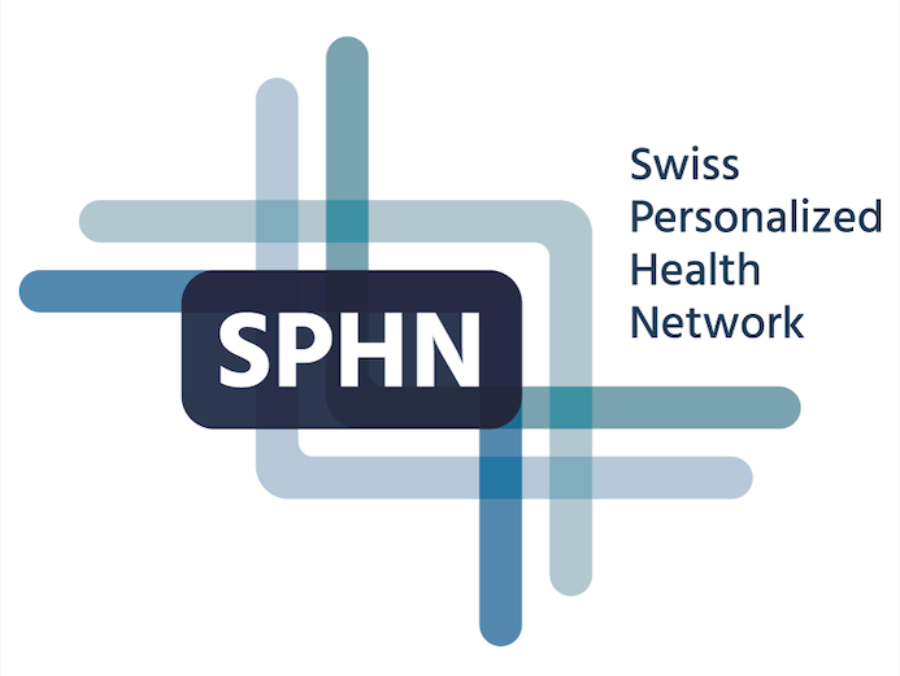
SPHN
20.09.2024
Cantonal hospitals are joining SPHN
The Swiss Personalized Health Network (SPHN) has launched a new program to integrate cantonal hospitals in its network. By participating in the SPHN network, the hospitals can now standardize and securely share consented health data. This step is key for advancing multi-site research in personalized medicine.
The hospitals participating are the Cantonal Hospital Lucerne, Cantonal Hospital Aarau, Ente Ospedaliero Cantonale, Cantonal Hospital Baden, and Cantonal Hospital St. Gallen. Additionally, the Swiss Group for Clinical Cancer Research, a non-profit organization, is also joining the initiative. This collaboration marks a significant advancement in personalized medicine promoting better healthcare outcomes for all.
Further information
Projects
16.09.2024
One Health: a holistic approach to human, animal and environmental health
The SAMS is committed to promoting a holistic understanding of health in Switzerland in the sense of One Health. A multimedia web report highlights the interdependence of human, animal and environmental health in an impressive way. With the financial and staff support of the SAMS, the «One Health Story» could also be realised in French.
The publication of the French version is reason enough to recall the project that was awarded the 2022 «Prix Média» by the Swiss Academies of Arts and Sciences. In seven chapters, various aspects of the One Health concept are explored in depth using text, illustrations, videos and audio. Visit the website to learn more about zoonoses, ways to prevent pandemics or why nature is systematically relevant for our health.
Further information
Ethics
04.09.2024
Symposium «Governing by Values»: Medical-ethical guidelines in transition
Together with the University of Bern, the SAMS organized a symposium on 3 September 2024 on the significance, legitimacy and further development of the guidelines. Various presentations from the conference are available online.
The symposium was based on the SNSF project «Governing by Values». It examined the history of the SAMS guidelines from a historical and legal perspective. In addition to questions relating to the legal framework, the symposium reflected on the current relevance and utility of the guidelines. Some of the presentations (in German and French) can be found on our website. The SAMS will publish a report on the relevance of the guidelines. The results of the SNSF project will be published by the researchers in due course.
Visit the website
Publications
27.08.2024
Clinical research: the CPCR at a crossroads
The national Coordination Platform Clinical Research (CPCR) is intended to strengthen the dialogue between the public actors of clinical research in Switzerland in the broader sense, to better harmonise their objectives and to clarify responsibilities. The focus of the current SAMS Bulletin shows how far this initiative has progressed, what challenges there are and what role the CPCR could play in the future.
You can also look forward to an interview with Franziska Sprecher on the legal status of the SAMS medical-ethical guidelines and find out how the Swiss Personalised Health Network (SPHN) is moving into the consolidation phase. In addition, there is news from our Senate and about our funding programs and prizes.
Bulletin 3/2024, French version (PDF)

Projects
21.08.2024
SAMS podcast on the Federal Health Act
In its statement of May 2024, the SAMS proposed anchoring health in a constitutional article and drafting a Federal Health Act on this basis. In the «Morgen:Rapport» podcast, Daniel Scheidegger, former President of the SAMS, talks about this idea, its purpose and the urgency of rethinking health issues.
An article on health in the Federal Constitution would have to take into account the «One Health» approach, at the interface between humans, animals and the environment and promote the concept of «Health in all Policies». A Federal Health Act should strengthen prevention and health promotion, as well as guaranteeing care and effective governance. Daniel Scheidegger explains how this will improve the Swiss healthcare system with some surprising comparisons with other sectors. Visit the Morgen:Rapport to listen to the podcast in German.
Visit the website
Ethics
13.08.2024
SAMS guidelines: relevant to practice, not legally binding
For more than 50 years, the SAMS medical-ethical guidelines have been providing practical advice to health professionals. They reinforce values such as patient autonomy, justice and the principle of non-harm. Many guidelines concern topics that affect fundamental rights. The fact that such ethical standards are drawn up by a foundation under private law raises questions about the legal framework and their legitimacy. The SAMS commissioned a legal opinion to examine these issues. The results are now available.
The legal opinion, written by Prof. Franziska Sprecher, University of Bern, provides a comprehensive overview of the complex legal framework in which the SAMS medical-ethical guidelines operate. As the SAMS has no legal mandate to draw up guidelines, they have no direct binding legal effect. However, their practical and conceptual importance is expressly recognised, both by health professionals and legal and political bodies. Download below the full version of the legal opinion (in German) or visit our website for a summary in German or French.
Legal opinion, in German (PDF)

Funding
09.07.2024
Magdalena Filipowicz Sinnreich winner of the Stern-Gattiker Award 2024
A lack of role models can slow down professional careers. This also applies to academic medicine and especially to women. Yet female role models do exist, and the Stern-Gattiker Award is dedicated to them. This year's prize, which is endowed with CHF 15’000, is awarded to Prof. Magdalena Filipowicz Sinnreich.
The Jury was particularly impressed by Prof. Filipowicz Sinnreich’s career path, which combines cutting-edge clinical medicine with outstanding basic research. The award winner also acts as a mentor for the next generation of scientists. Despite her demanding professional commitments, she sets an remarkable example in balancing family life and career. Find out more about the reasons for this choice and Prof. Filipowicz Sinnreich’s career path in our press release.
Press release, French version (PDF)

Funding
08.07.2024
Study on the national MD-PhD program: Career paths in focus
Since 1992, individual MD-PhD grants have supported young physicians to equip them with the skills necessary to bridge experimental research, patient-oriented research and clinical practice. The SAMS is convinced that these profiles are essential in view of the growing complexity of medicine. A study published in Swiss Medical Weekly shows how successfully the careers of grantees have actually developed since the program was launched.
The data collected for this study confirms that the National MD-PhD Program remarkably promotes promising physicians who remain active in both research and clinical practice in the long term. Eight years or more after completing the MD-PhD – when most have a stable position – 55% are working in a paid research position, 64% continue their scientific activity in a university hospital and 25% hold a professorship. The complete study and two complementary «Viewpoints» can be found online on Swiss Medical Weekly (Volume 154, No. 7).
Visit the website
Funding
04.07.2024
2024 grants and future of the national MD-PhD program
This year, 13 talented young physicians receive a national MD-PhD grant to realize a doctorate in natural sciences, public health or clinical research at a Swiss university. The 2024 grants conclude the last joint call for applications of the national MD-PhD program with the SNSF. Thanks to the partnerships that have been established, and those currently under discussion, the SAMS hopes to continue the program with a next call for applications early 2025.
This year’s grants amount to a total of CHF 2.4 million and cover the salaries of 13 young researchers. Details are given in the synopsis below. We conducted a survey of former MD-PhD grantees to assess whether the national MD-PhD program is reaching its goals and paving the way for a career as physician-scientist. The data collected suggest that this is indeed the case. The link to the full study and information on the future of the national program can be found on our website.
Synopsis of grantees (PDF)
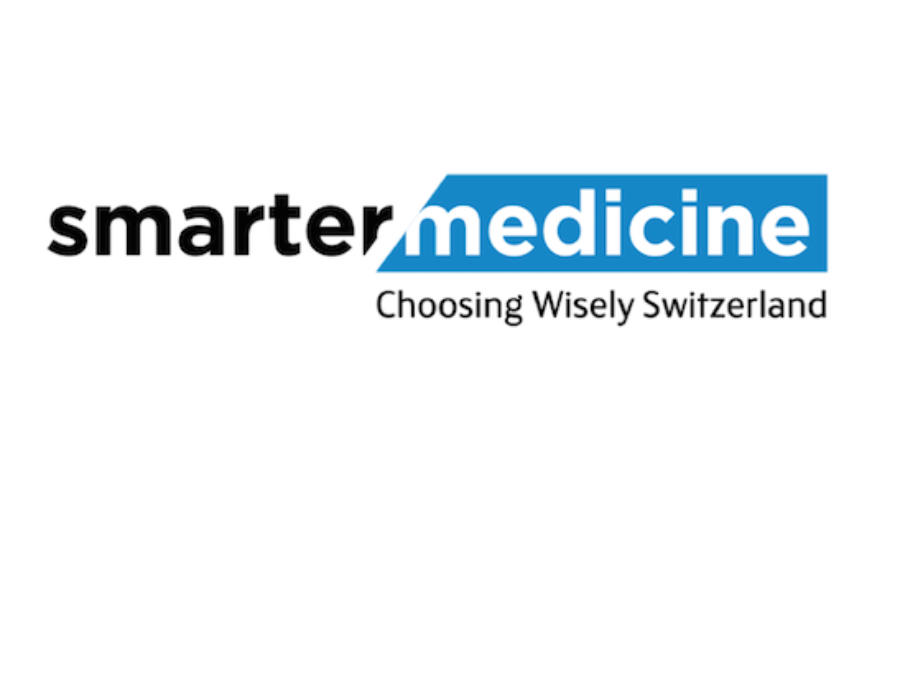
Projects
01.07.2024
smarter medicine: 40'000 francs to promote research
The association «smarter medicine – Choosing Wisely Switzerland», of which the SAMS is a member, is committed to optimising healthcare in Switzerland. In order to support quality-enhancing research projects, the association is once again offering a grant. Applications can be submitted until 30 September 2024.
Research projects that focus on medical overuse and misuse or on the extent of this phenomenon are still rare in Switzerland. This is why «smarter medicine» is investing up to CHF 40’000 to support research projects that investigate the problem and/or identify solutions. The call for proposals is open from 1 July to 30 September 2024. Further information on the call for proposals and the composition of the jury can be found on the website (in French or German).
Further information
Publications
26.06.2024
Developing the healthcare system: our SAMS Bulletin presents ideas
The DIPEx database enables patients to document their individual experiences and thus make their voices heard within the healthcare system. The current Bulletin of the SAMS, available in French or German, will enable you to discover what additional benefits these resources bring to research, training and a learning health system.
In Bulletin 2/2024, you will also find an interview with Katrin Crameri and Thomas Geiger on the future of the Swiss Personalized Health Network, and our proposal for a new article in the Constitution and a Federal Health Act. As usual, you will find the latest news from our General Secretariat and our Departments Ethics and Promotion as well. We hope you enjoy reading it.
Bulletin 2/2024, French version (PDF)
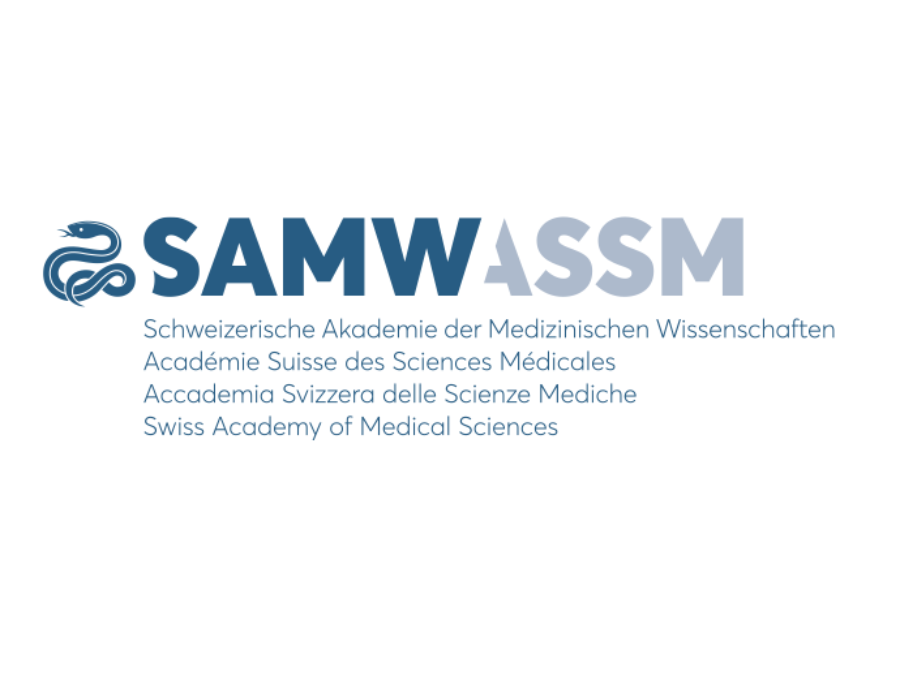
Academy
18.06.2024
The SAMS has updated its mission statement
At its meeting on June 13, the Senate approved an updated version of the SAMS Charter. The one-page document summarizes the Academy's guiding principles, objectives and missions. The SAMS is not reinventing itself, but refining its self-perception in a constantly changing environment.
Based on several months of strategic reflection, the document last revised in 2009 has undergone a number of changes. The first part now focuses on the principles of independence, transparency and inclusiveness. The second part details the three missions pursued by the Academy: 1. Medicine and society, 2. Medicine as a science and a practical discipline 3. The SAMS as a member of the scientific community. The Senate welcomed this initiative and approved the update.
Mission statement, French version (PDF)

Academy
14.06.2024
The SAMS will have a new President in January 2025
At its meeting on June 13, the Senate elected Prof. Arnaud Perrier as the new President of the SAMS. Prof. Perrier will succeed Prof. Henri Bounameaux, who is extending his mandate until December 31, 2024. A member of the Senate since 2018, Prof. Perrier is well acquainted with the SAMS, having served on the Executive Committee between 2013 and 2016 and participated in the work of several commissions.
Trained as an internist, Prof. Perrier spent most of his career at Geneva University Hospitals (HUG), where he headed the general internal medicine department. During this time, he has been an active clinician and clinical researcher, and has been involved in the reform of medical studies. He is currently Medical Director of the HUG until the end of the year. Visit our website for the current composition of our Executive Board.
Visit the website
Ethics
11.06.2024
The SAMS guidelines in use: questions about assessment of capacity
The medical-ethical guidelines provide a theoretical basis and practical guidance on ethically challenging situations in everyday clinical practice. In the journal «Primary and Hospital Care», the SAMS guidelines are illustrated with concrete practical examples. The last article of the series deals with assessment of capacity. It is now available on our website in French and in German.
Medical-ethical guidelines need to be put to the test in practice. In this context, not only one's own experiences are important, but also those of professional colleagues. For this reason, «Primary and Hospital Care» has published a series of case studies since 2018 in which various SAMS guidelines are applied in practice. Previous topics have included for example palliative care, coercive measures in medicine and the medical care of people with dementia. The last contribution deals with assessment of capacity. It can be downloaded here, in French and in German. Previous articles are available on our website.
Download, French version (PDF)

Academy
10.06.2024
RNA technologies: mechanisms of action and applications
Ribonucleic acids (RNA) play an essential role in all cells of all organisms. The Covid-19 pandemic brought RNAs in the form of mRNA vaccines into the spotlight: less than a year after the outbreak of the pandemic, mRNA-based vaccines against Sars-CoV-2 were available in most western countries. A report published by the Swiss Academy of Natural Sciences (SCNAT) describes these and other RNA-based technologies.
The aim of the report is to provide a technical and scientific overview of the various currently relevant RNA technologies. It provides information on the mechanisms of action of the various RNA-based approaches, their fields of application and their development status. The report is intended to help assess and discuss the benefits, risks and limitations of the various RNA technologies and their products. It is also intended to support the legal categorisation of RNA products.
Report (PDF)

Agenda
27.05.2024
Register now: Network event of the Biomedical Libraries
The «Biomedical Libraries» Commission, hosted by the SAMS, is holding a network event. This year’s «Exchange between Systematic Reviews experts» will take place on Tuesday, 27 August 2024 in Basel. Participation is free of charge, registrations are requested until 21 June 2024.
The event offers Systematic Reviews experts from the different institutions an opportunity to exchange experiences and learn from each other. After short input speeches, various aspects of systematic reviews services will be discussed in a «World Café». The event will be held in English. More information can be found in the program.
Program (PDF)

Academy
23.05.2024
Statement in favour of a Federal Health Act
At the beginning of June, the Swiss people will vote on two initiatives concerning costs in our health care system. Regardless of the outcome of the vote, a number of major issues will remain unsolved: an ageing population, staff shortages, the electronic patient record, etc. On the basis of a scientific analysis, the SAMS is now proposing a new article in the Constitution and a Federal Health Act in order to find long-term solutions and enable effective governance of the healthcare system.
Health must be understood as a holistic concept in the sense of «One Health», at the interface between humans, animals and the environment. This requires endeavours towards «Health in all Policies». In its statement, the SAMS therefore supports the idea of a Federal Health Act and also proposes that health should be enshrined in the Constitution. You will find a concrete proposal for this new article in our statement (pdf). Further documents and background information are available on our website.
Statement, French version (PDF)
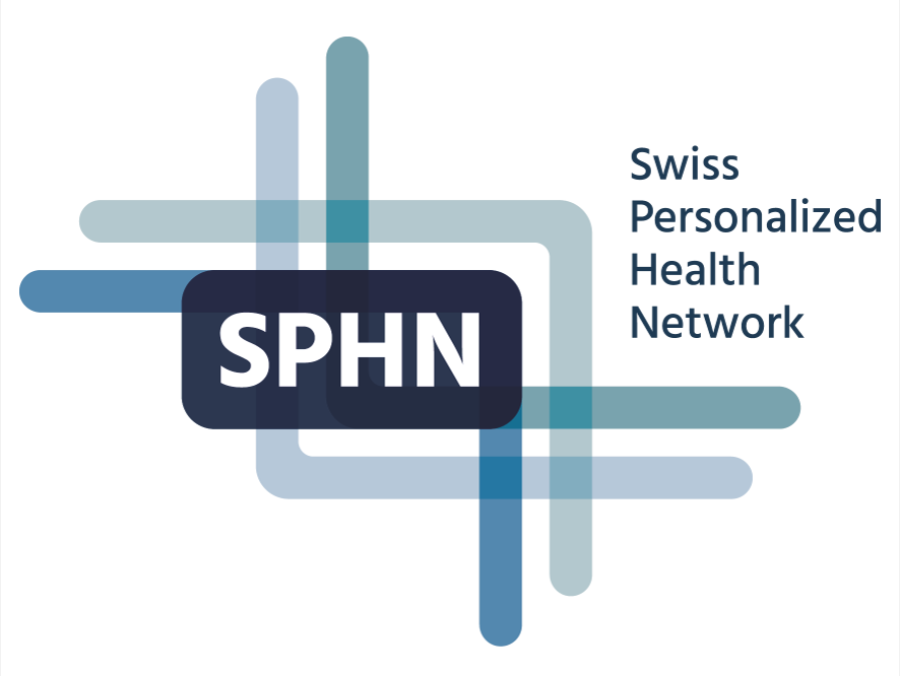
SPHN
06.05.2024
SPHN: Continuity despite change in DCC leadership
After 5 years as Director of the SPHN Data Coordination Center (DCC) and Group Leader of the SIB Personalized Health Informatics Group, Katrin Crameri will join the Swiss Confederation to take up a new position from 1 June 2024. Among other things, she will co-lead the DigiSanté program to promote the digital transformation in the healthcare sector. Thomas Geiger, Managing Director of SPHN, will assume ad interim the responsibility for the DCC’s activities.
In her new position, Katrin Crameri is also taking on a bridging role: there are many overlaps and potential synergies between the SPHN-DCC and DigiSanté, and relations with the FOPH's Digital Transformation department can be further strengthened. Thanks to Thomas Geiger, Managing Director of SPHN since 2021, continuity has also been ensured within SPHN. His comprehensive knowledge and his good relations with the DCC team and network partners will ensure a smooth transition. More information can be found on the SPHN website.
Visit the website
SPHN
02.05.2024
SPHN and PHRT invite for the «Data for Health» symposium
The Swiss Personalized Health Network (SPHN) and ETH-Domain Personalized Health and Related Technologies (PHRT) initiatives jointly organize the «Data for Health» symposium. The all-day event will take place on 31 October 2024 in Bern and aims to present the results of the two initiatives and to shape a vision of the future data ecosystem for Swiss health research. Registration is now open.
Over the past eight years, the collaborative efforts of SPHN and PHRT have laid important groundwork for advancing personalized health research and care in Switzerland. The symposium will not only look back, but also forward. Special emphasis will be given to the interfaces with the DigiSanté program and the National Strategy for Open Research Data. Participants can look forward to keynotes by well-known personalities, including Prof. Martina Hirayama, State Secretary for Education, Research and Innovation. More information is available on the SPHN website.
Visit the website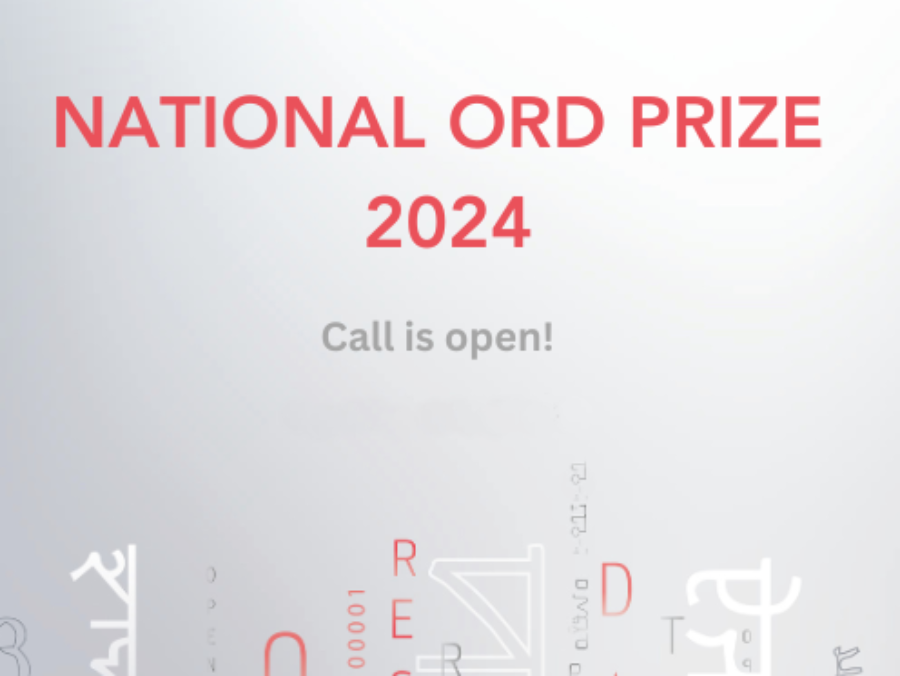
Academy
26.04.2024
Call: National Prize for Open Research Data
For the second time, the Swiss Academies of Arts and Sciences are launching the National Prize for Open Research Data (ORD Prize). This is part of the «Open Research Data» action plan implemented by the Academies as part of the National Strategy. The Prize rewards researchers for innovative practices in the field of ORD and aims to promote the transition to open research practices.
Open research data promotes transparency, reproducibility and collaboration within the scientific community, and enables society to benefit from scientific knowledge. Further information on the ORD Prize, the conditions for participation and the application form can be found on the Academies’ website. The call is open until 31 July 2024.
Visit the website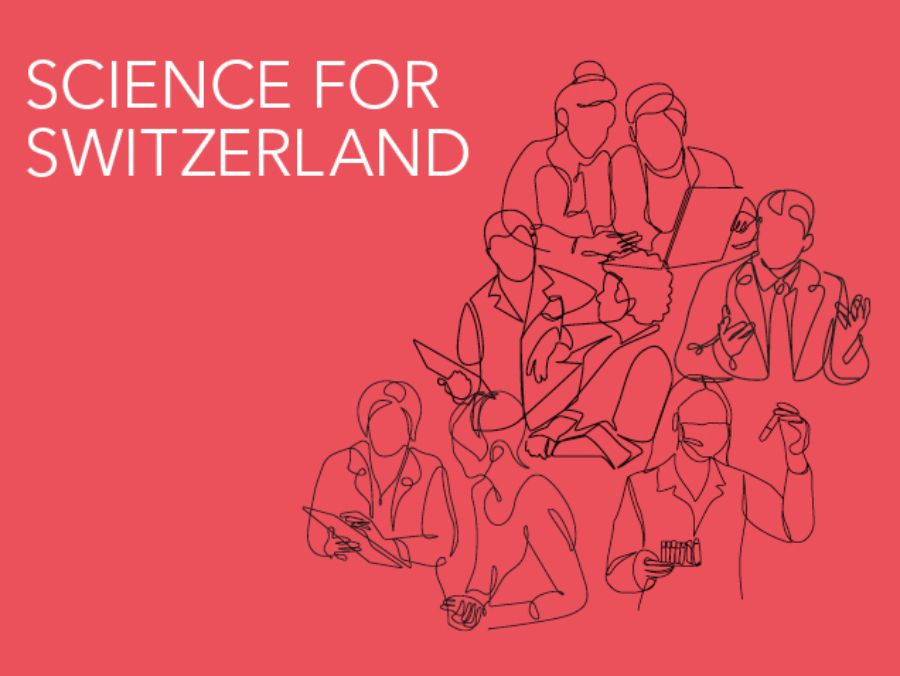
Academy
23.04.2024
Essential investment in education, research and innovation
At the beginning of March, the Federal Council submitted the Dispatch on Education, Research and Innovation for 2025–2028 (ERI Dispatch) to Parliament. It sets out the objectives and funding for institutions promoting research and innovation. For the first time since the 1990s, the resources allocated are lower than in the previous year. This will also affect the Swiss Academies of Arts and Sciences (a+), which face cuts of CHF 6.8 million a year.
At a media conference held yesterday, a+, together with its ERI partners, explained how this declining investment policy could jeopardise the development of Switzerland as a scientific hub. The Academies, including the SAMS, are facing a deficit of more than CHF 27 million for the years 2025–2028. Furthermore, they will have to finance additional projects as part of their core mandate, despite the fact that the 2024 budget has already been reduced. Further information can be found on the a+ website.
Further information
Agenda
16.04.2024
Symposium «Governing by Values»: Medical-ethical guidelines in transition
The medical-ethical guidelines of the SAMS are at the crossroads of medicine, ethics, law and health policy. Together with the University of Bern, the Academy is organizing a symposium on the significance, legitimacy and further development of the guidelines. Join the discussion on Tuesday, September 3 2024, at the Eventforum Bern. Participation is free, but registration is required.
Who should be and who is permitted to develop medical-ethical guidelines in Switzerland? How effective and binding are they? These questions will be addressed at the symposium. The starting point is the University's SNSF project «Governing by Values», which examined the history of the SAMS guidelines from a historical and legal perspective. In addition to the project research findings, the current relevance and utility of the guidelines are reflected. The symposium aims to contribute to a transparent and practice-oriented further development. The event is in French and German.
Program, French version (PDF)

SPHN
15.04.2024
Swiss Personalized Health Network: Short Report 2023
The Swiss Personalized Health Network (SPHN) coordinates the development of an infrastructure for the responsible and efficient reuse of health-related data throughout Switzerland. The Short Report 2023 provides an overview of the various SPHN activities over the past year and the progress made.
In 2023, the SPHN National Steering Board published its report on the continuation of the SPHN infrastructures from 2025 onwards. The ERI Dispatch 2025–2028 includes the consolidation of the SPHN-DCC as a national coordination and competence center in the area of health data. How this can be successfully operationalized in a financially challenging environment has been a key concern over the past year and will remain so in the current year. More information and other SPHN publications are available on our project page.
SPHN Short Report 2023 (PDF)
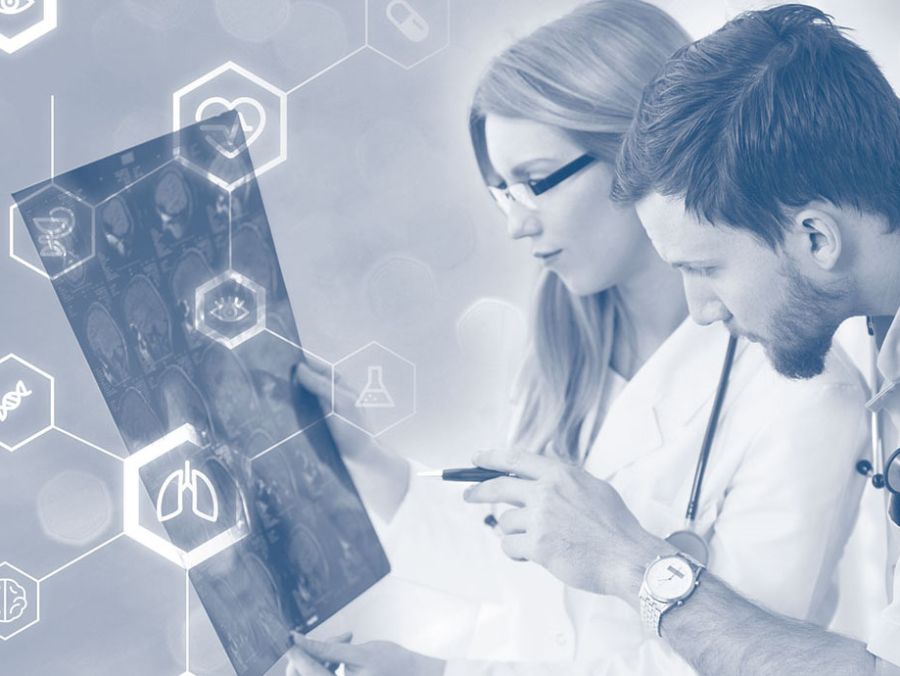
Funding
09.04.2024
Young Talents in Clinical Research: Call 2024
With the Young Talents in Clinical Research program, the Gottfried and Julia Bangerter-Rhyner Foundation and the SAMS wish to encourage young medical doctors to start out in clinical research. For 2024, CHF 1 million is made available to finance protected research time and project grants for a consecutive research project. The submission deadline is 30 June 2024.
The YTCR program comprises two funding instruments: beginner grants and project grants. Its target audience are residents who wish to be freed from clinical duty to gain a first experience in clinical research. Applications must be written in English and registered online. More information on the participation criteria, submission and evaluation procedure can be found in the program regulations, on our website, and in the FAQ.
Visit the website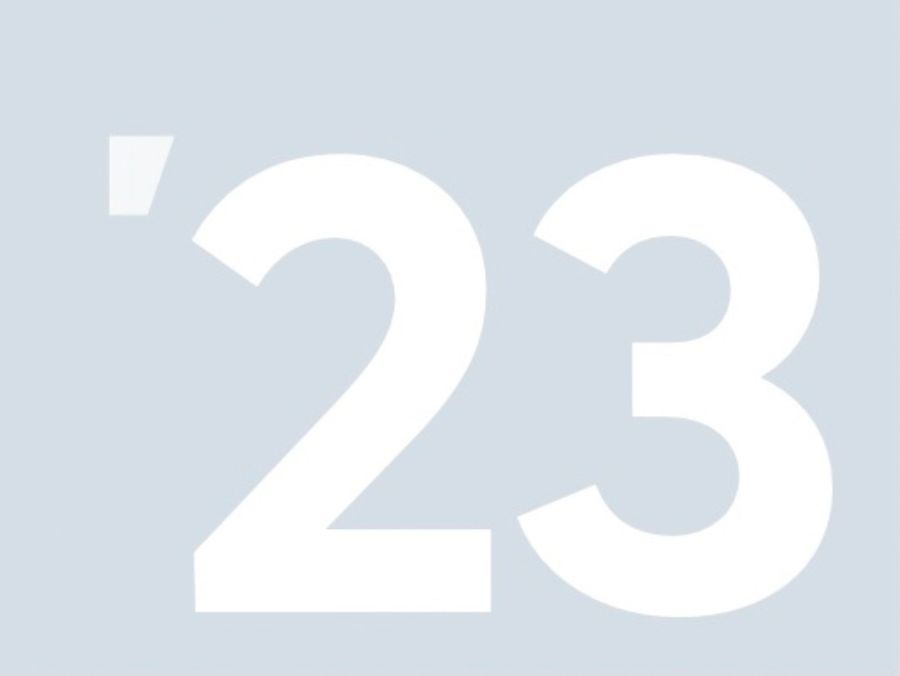
Academy
26.03.2024
The SAMS Annual Report 2023 is online
The year 2023 was perfectly aligned with the SAMS motto «For science, for medicine, for society». Work continued on a number of projects, and collaborations were strengthened or partly reoriented. There was also cause for celebration: 80 years of SAMS – cheers!
The retrospective remains the centrepiece of our online annual report. It provides a quick overview of the work carried out over the reporting year. The boxes in the colours of our subdivisions illustrate the variety of our activities and testify to our diverse commitment to science, medicine and society. Scroll through the multicoloured year 2023 and find again familiar milestones or discover new ones. A PDF of the report is also available if you prefer to print rather than scroll.
Download the report, in French (PDF)

Publications
19.03.2024
The potential and limits of artificial intelligence in medicine
Artificial intelligence (AI) is on everyone’s lips these days. The dazzling progress made by this technology explains this craze, with ChatGPT as its main ambassador. But what is the potential of AI in medicine? The lead article in the SAMS Bulletin 1/2024, written by Prof. Andreas Wicki of the University of Zurich, offers some answers for the author’s speciality, oncology.
The processing of data in certain areas of medicine is such an immense task that it cannot be carried out by human beings, and AI must be used for this purpose. In his contribution, Andreas Wicki looks in particular at the benefits of AI applications in tumour boards in the search for the right treatment recommendation. Further, SPHN’s article is dedicated to the topic of AI, and as always, you will also find news in the fields of ethics, promotion and projects.
SAMS Bulletin, French version (PDF)

SPHN
14.03.2024
SPHN: Bottlenecks to health data sharing
The Swiss Personalized Health Network (SPHN) has laid important foundations to enable and promote the responsible use of health data in research. The sharing of health data however faces repeatedly hurdles and bottlenecks. A recently published study now provides new insights.
In addition to the technical aspects, the study also sheds light on the legal and ethical challenges that arise when sharing sensitive health data. It concludes that facilitating data access and exchange in Switzerland primarily requires further legal clarification, training and investments in sustainable infrastructures. You can download the Swiss Medical Weekly article here.
Read the article (PDF)

Funding
05.03.2024
Call for proposals: KZS Seed Grants for junior researchers in biomedical ethics
This year the SAMS provides a total of CHF 250’000 from the Käthe-Zingg-Schwichtenberg (KZS) Fund to support junior researchers in biomedical ethics who wish to carry out an independent research project. The submission deadline is 1 May 2024.
Per Seed Grant, up to CHF 80’000 can be awarded for a maximum period of 18 months. The contributions allow grantees to explore an innovative research idea, to realize a small, independent pilot project, and/or to prepare their own project proposal to be submitted to a larger funding agency. Visit our website for more information on the participation requirements and submission procedure.
Visit the website
Ethics
27.02.2024
Advance Care Planning: logo, annual report and new subprojects
The project has been given a logo so that Advance Care Planning (ACP) is not only addressed in theory, but also anchored in people's minds. It stands for the common goal of the national working group to further establish ACP in Switzerland and make it part of everyday life. In addition, subprojects are ongoing to take the recommendations of the roadmap published in 2023 one step further.
One current focus is on ACP for people living in retirement and nursing homes. A national survey will be conducted to determine the current status of ACP in nursing homes. Based on the results, practical solutions will be developed to improve ACP in this setting. Information on other activities and projects of the ACP Working Group can be found in the 2023 Annual Report (available in German and French).
Download the annual report (in French) (PDF)

SPHN
16.02.2024
SPHN in the spotlight of the «health terminal» podcast #29
The «health terminal» podcast gets to the heart of topics relating to the digitalisation of the Swiss healthcare system. Episode 29 focuses on the Swiss Personalized Health Network (SPHN). Find out in the double interview why it is such a major challenge to make health data available and usable for research.
Thomas Geiger, Managing Director of SPHN, and Katrin Crameri, Director of the SPHN Data Coordination Center, explain what SPHN has achieved so far – and what still needs to be done. Further, they discuss why in Switzerland it is sometimes difficult to establish sustainable research infrastructures of national importance, and to find a supporting alliances and long-term funding. Visit the website to listen to the interview (in German).
Visit the website
Projects
14.02.2024
The recommendations for health-related registries have been updated
Health-related registers are a key component of quality assurance and development in the health system. They contribute to the transparency and comparability of medical services, form the basis for clinical and epidemiological research and provide important data for health policy. The 2019 registry recommendations have been updated.
The editing organisations, among them the SAMS, have updated the «Recommendations for the development and operation of health-related registries» to take account of the introduction of the new federal legislation on data protection on 1 September 2023. You will find the new version (2.1) of the recommendations and the checklist on the ANQ website.
Visit the website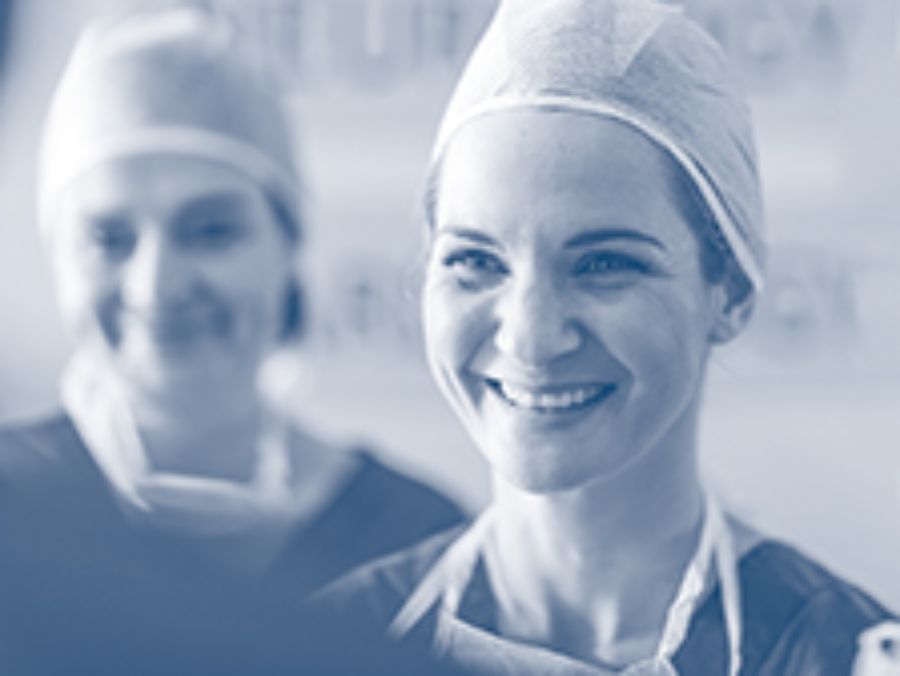
Funding
30.01.2024
Stern-Gattiker Prize 2024 for female role models in academic medicine
For the fourth time, the SAMS is launching a call for nominations for the Stern-Gattiker Prize to acknowledge the role of women in academic medicine and to motivate early-career female scientists. The Prize carries an award of CHF 15,000, the deadline for submission is 21 March 2024.
With the Stern-Gattiker Prize, the SAMS rewards every two years a female medical scientist who has obtained her postdoctoral qualification within the past ten years, holds a permanent position in a hospital, and who, in her own way, is considered as a role model. The proximity to the next generation of doctors and the commitment to gender equality are a plus. Detailed information on the nomination process and the synopsis all previous prizes winners can be found on our website.
Download the synopsis (PDF)

Academy
22.01.2024
Become a member of the Swiss Young Academy
The Swiss Young Academy (SYA) brings together young researchers from a wide range of scientific disciplines. It creates an inspiring environment for inter- and transdisciplinary exchange. The current call for applications, with submission deadline on 29 February 2024, offers the opportunity to apply for a five-year membership.
The Swiss Young Academy consists of 25 to 30 members from different scientific disciplines and universities. They are regarded as the young voice of the Swiss Academies of Arts and Sciences and can raise concerns relevant to the next generation of researchers. Are you interested in becoming actively involved in the largest scientific network in Switzerland? New members with a background in medical sciences are welcome to apply. Please visit the JAS website for more information on the requirements and application procedure.
Visit the website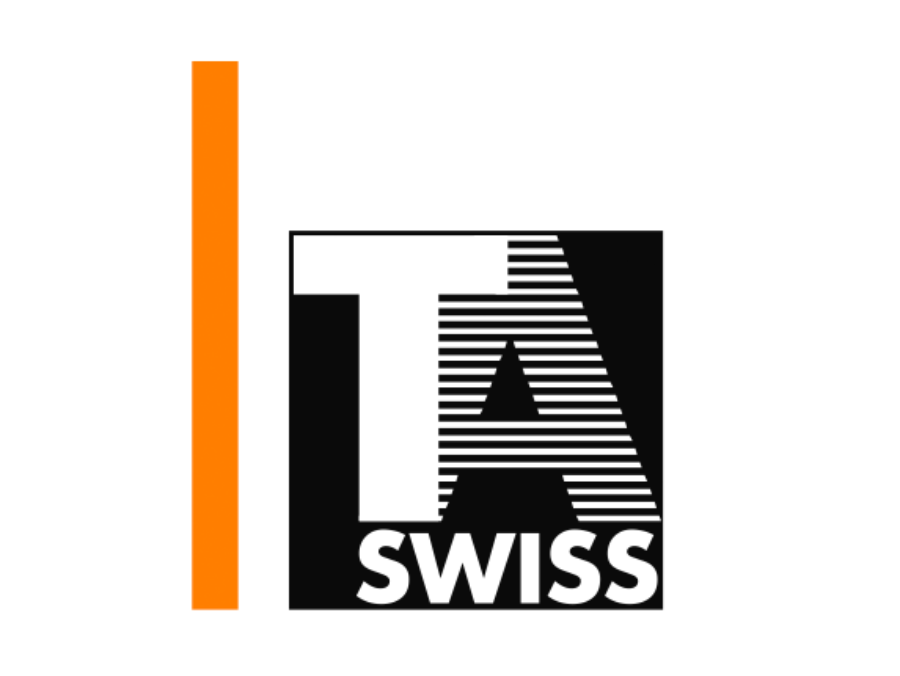
Academy
19.01.2024
Health data: call for project outlines
TA-SWISS, the Foundation for Technology Assessment and member of the Swiss Academies of Arts and Sciences, is launching an interdisciplinary study on health data. The aim is to assess the opportunities and risks of using data for early detection, prevention and research. Project outlines can be submitted until 28 March 2024.
The call for proposals is organized in a two-stage process. The first stage involves submitting a project outline describing the planned content of the study and the envisaged procedure. Further information can be found on the TA-SWISS website and in the call documentation (French or German).
Documentation, French version (PDF)
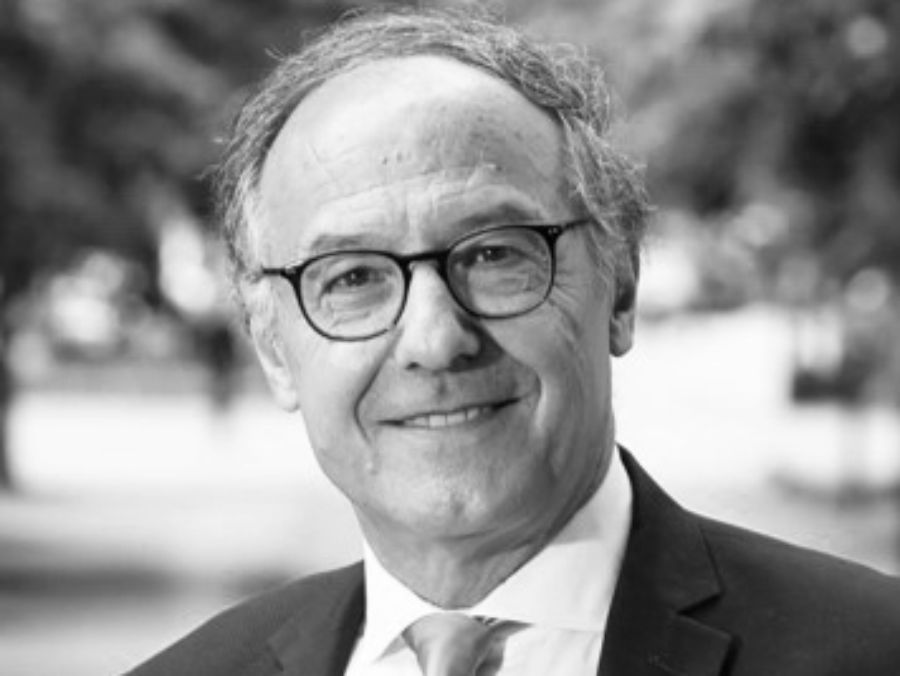
Academy
02.01.2024
Interview with the new President of a+
As of this year, the Swiss Academies of Arts and Sciences (a+) have a new President: Yves Flückiger will succeed Marcel Tanner, who is handing over the reins after more than three years. In an interview published in the latest issue of the research magazine «Horizons», Flückiger says: «My main objective will be to strengthen the climate of trust between science and society.»
In this interview, the current Rector of the University of Geneva talks about the state of science in Switzerland, relations with Europe and working conditions at universities. Read more on pages 34 and 35 of the research magazine «Horizons» no. 139.
Download the interview (PDF)